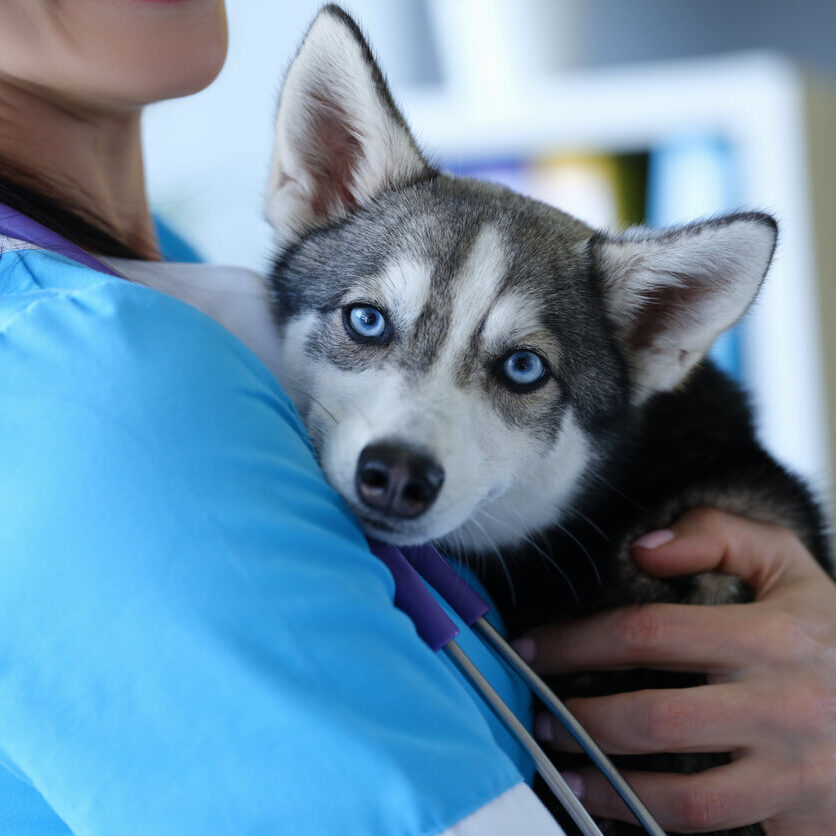
Providing Personalized Treatment for Allergies in Dogs and Cats in Hinsdale & Elmhurst, IL

Allergies are an inescapable reality for many pets, just as they can be for humans. Lane Veterinary strives to deliver the gold standard of care in all areas, including the treatment of allergies in dogs and cats here in Hinsdale. We offer a wide range of diagnostic tests to get to the bottom of your pet’s condition, and just as many treatment options that can be tailored to their needs. An itchy pet is not necessarily a healthy pet; timely treatment can make a huge difference in your companion’s quality of life. It can also prevent secondary skin infections and other issues that could make their condition harder to treat!
Let’s treat your pet’s itching and get their allergies under control. Contact Lane Veterinary at (630) 320-6644 or request an appointment today!
What Causes Allergies in Dogs and Cats, and What are the Signs?
Many of the allergens that affect us can also affect our pets, causing itchy skin, runny eyes and a runny nose, and sneezing. Common pet allergens include:
- Pollen (ragweed, cottonwood, etc.)
- Grass
- Mold spores
- Food ingredients such as eggs, wheat, pork, and beef
- Cleaning solutions
- Lawn treatments
- Food dyes
- Fleas
In addition to the outward signs of an allergy mentioned above, we also ask pet parents to look for:
- Persistent redness of the skin (red, raw, and inflamed)
- Scaly, dry patches on the skin
- Dandruff in the coat
- Bald patches on the flanks, under the legs and arms, and between the toes
- Almost constant licking/chewing of the feet and certain spots on the body that may be itchy
- Staining around the eyes (from having runny eyes)
Options for Diagnosing Your Pet’s Allergies
Your pet deserves to feel comfortable and happy again. Allergies can be a struggle for them and for you, but Lane Veterinary has the team and resources to help!
We offer a variety of diagnostics to better understand your pet’s condition following the physical exam:
- Metabolic screens
- Skin scrapings
- Skin biopsies
- Serum allergy testing
If a food allergy is a possibility, we can also try putting your pet on an elimination diet. This can be challenging, as it involves putting your pet on a different food and not allowing them to eat anything else for several months. Once the trial is up, your pet is given their original food so we can see if they experience an allergic reaction.

Different Ways We Can Treat Your Pet’s Allergies
We can provide a highly tailored allergy management plan for your pet once we’ve diagnosed the type and root cause of their allergy. Based on their age, breed, size, and other unique factors, we can minimize your pet’s need for pharmaceuticals and recommend any of the following options (though some pharmaceuticals may play a temporary role):
- Lifestyle and environmental changes to limit your pet’s exposure to certain allergens
- A vet-prescribed hypoallergenic diet
- Allergy immunotherapy tailored to specific allergens (based on serum allergy results)
- Topical creams, ointments, sprays, and/or hypoallergenic shampoo
- Cytopoint, a biologic treatment given via injection
- Apoquel, an oral anti-itch medication
